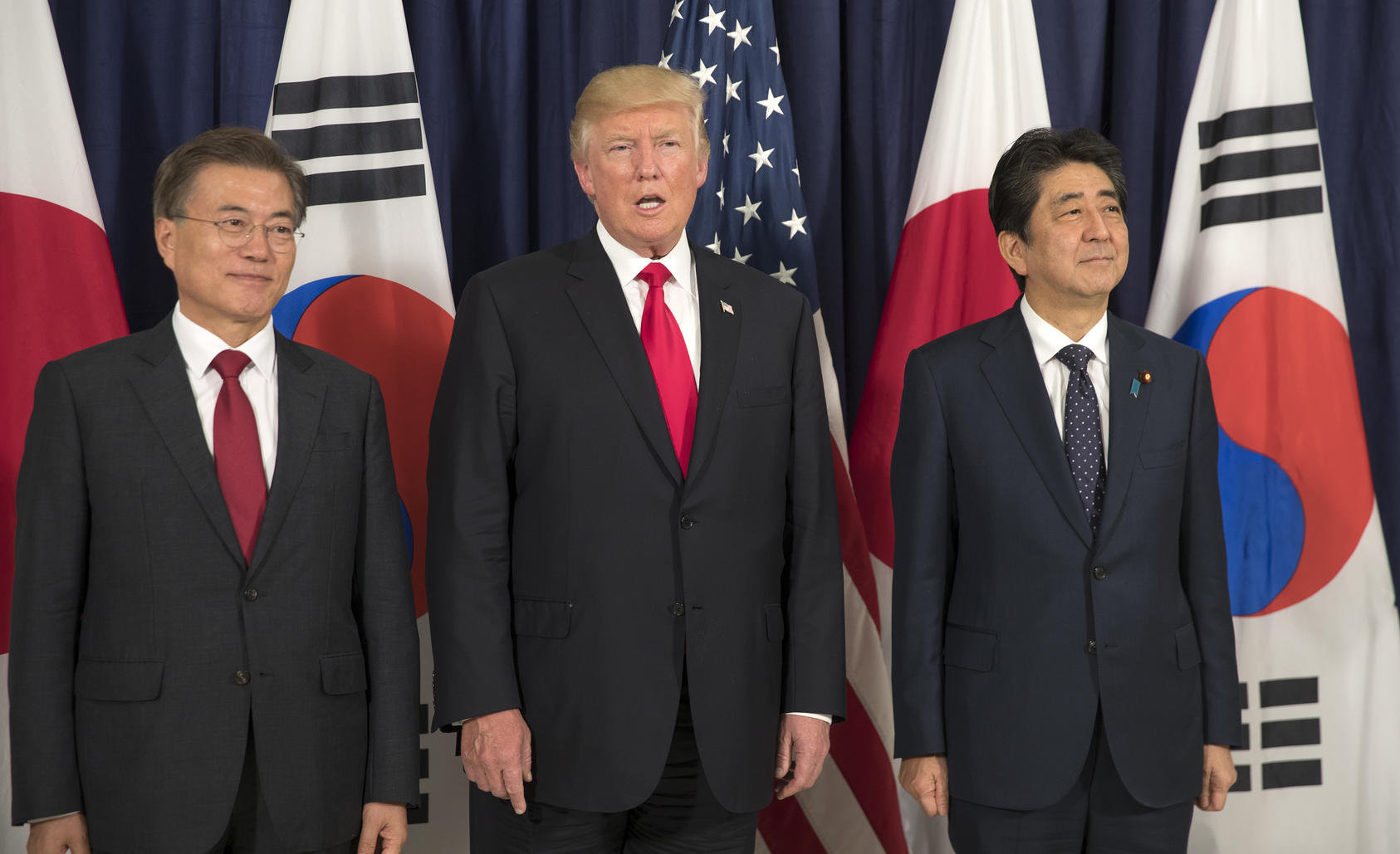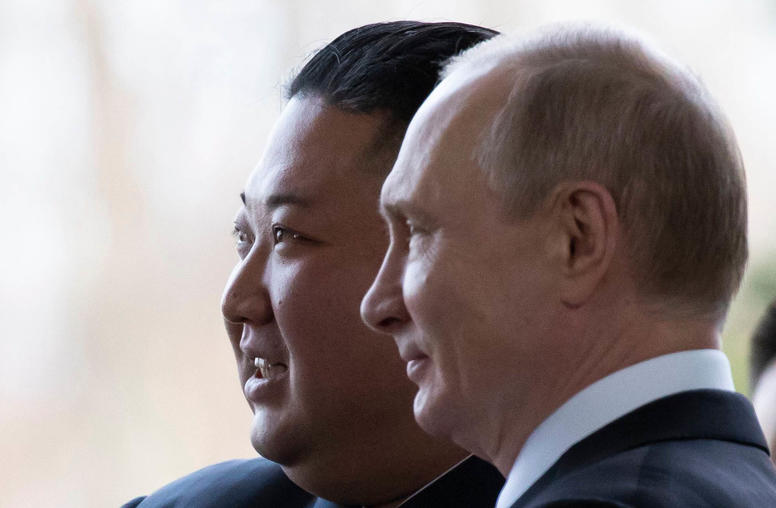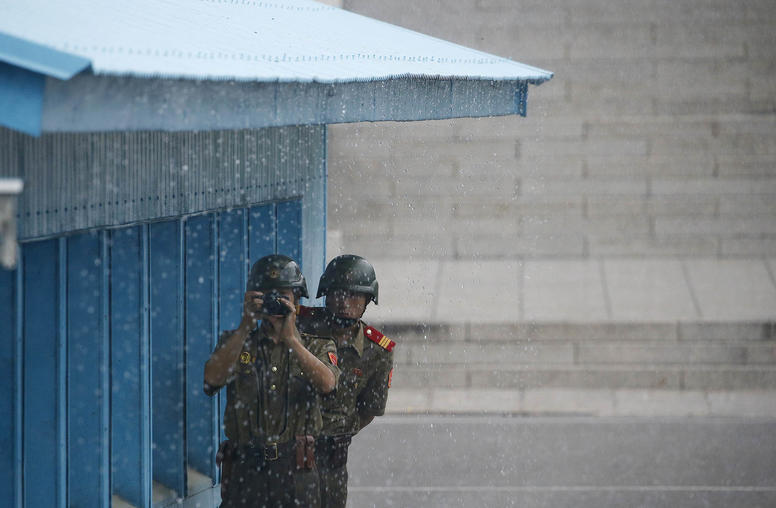As President Trump makes his first official visit to the Asia-Pacific region this week, North Korea will be a top agenda item. Although leaders in Japan, China, and South Korea have different strategies for resolving the crisis, they all will be watching for signals about the U.S. commitment to its regional alliances and its willingness to use force against North Korea.

Concerns about North Korea’s accelerated nuclear and missile demonstrations, as well as sharp rhetoric from Washington and Pyongyang, have roiled internal politics in the Asia-Pacific as well as relations between countries of the region.
Following North Korean missile launches over Japanese territory, Prime Minister Shinzo Abe called snap parliamentary elections last month. Many pundits expect his coalition’s decisive victory will allow for an eventual amendment to Japan’s pacifist constitution to formally codify the existence of its Self Defense Forces. Abe and Trump have both advocated for increased pressure on North Korea, but it is unclear whether Japan would also support the use of force.
Chinese Agreement with South Korea
In China, President Xi Jinping emerged from last month’s Communist Party Congress as the most powerful Chinese leader since Mao Zedong, and continues to push for a diplomatic solution to the North Korean crisis. Xi already has lessened China’s own tensions with South Korea, with an agreement to resume normal relations after two years of disagreement over Seoul’s decision to deploy the U.S. Terminal High Altitude Area Defense anti-missile system. China also has agreed to stronger sanctions against North Korea, while calling on the United States to pursue a “negotiated solution” to the crisis and take additional steps to reduce tensions in the region.
In South Korea, 90 percent of the public prefers a peaceful solution, and President Moon Jae-in has repeatedly stressed that the United States cannot take military action against North Korea without first getting South Korea’s approval. However, Pyongyang’s growing nuclear program also has prompted renewed debate about whether South Korea should encourage the redeployment of U.S. tactical nuclear weapons or even develop its own indigenous weapons.
Diplomacy or Military Options?
Throughout the Nov. 3-14 visit, Trump’s words and actions will send important signals about U.S. policy toward North Korea. Consistent with past remarks, Trump might continue to underscore that “time is running out for diplomacy” and that military options are still on the table—escalatory words that, delivered so close to North Korean territory, could invite a sour response.
However, by forgoing a tour of the demilitarized zone (DMZ) on the North-South border, and instead choosing to visit U.S. troops at Camp Humphreys, 90 kilometers south of Seoul, President Trump will set a less threatening tone and highlight South Korea’s contributions to the alliance.
The agenda for the president’s trip will be full, but the signals Trump sends on North Korea will have the greatest impact on whether the visit will ease or heighten regional anxiety.
The Asia trip provides an important opportunity to de-escalate tensions, demonstrate steady American leadership, and reassure the region that the United States is committed to its stability and prosperity.



